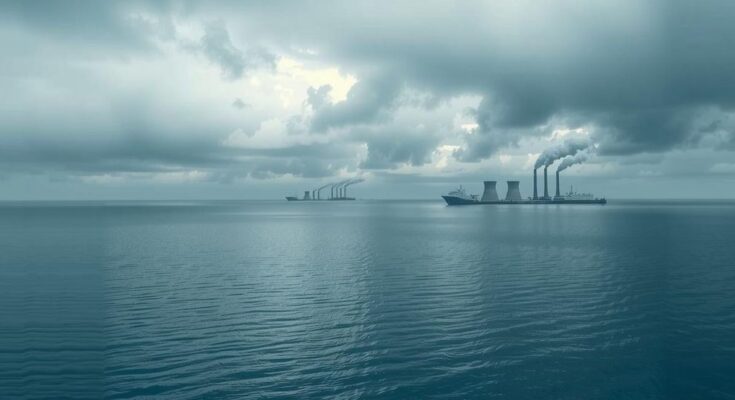Qatar’s Prime Minister warns that an attack on Iran’s nuclear sites could contaminate Gulf waters, threatening the potable water supply for millions in Qatar, the UAE, and Kuwait. He advocates for a diplomatic resolution to prevent military escalation, emphasizing the urgent need for water security in the region.
Qatar’s Prime Minister, Sheikh Mohammed bin Abdulrahman Al Thani, has issued a grave warning stating that an offensive against Iran’s nuclear facilities could severely contaminate the Gulf waters, jeopardizing the life of millions in Qatar, the UAE, and Kuwait. These nations possess minimal natural water reserves and rely heavily on desalinated water sourced from the Gulf, hence making them particularly vulnerable to any environmental devastation in the region.
Sheikh Mohammed emphasized that such an attack would render the Gulf void of life, declaring, “no water, no fish, nothing … no life.” He further advocated for diplomatic resolutions to prevent military actions that could lead to widespread conflict across the Middle East, asserting that Qatar would not endorse any military interventions against Iran.
Meanwhile, U.S. President Donald Trump has expressed a desire to negotiate a nuclear deal with Iran, suggesting dialogue with Tehran. Trump has reinstated a strategy of maximum pressure aimed at disrupting Iran’s economic operations and increasing the isolation of the nation on the global stage.
The Qatari Prime Minister highlighted the urgency for diplomacy, noting a critical assessment from years prior, which indicated that Qatar could face dire water shortages within three days following an attack on Iran’s nuclear installations. In a response to such threats, the country has constructed 15 large concrete reservoirs to secure its emergency water supply.
It is important to note that Sheikh Mohammed remarked on the proximity of certain Iranian nuclear sites, claiming they are closer to Doha than to Tehran, posing an immediate risk. Additionally, the Prime Minister cited Iran’s only operational nuclear power facility located along the Gulf coast at Bushehr as a potential threat. Qatar, an ally of the U.S. hosting the largest American military base in the region, also maintains complicated relations with Iran, sharing the world’s largest gas field.
In summary, Qatar’s Prime Minister has underscored the significant risks posed by potential military actions against Iran’s nuclear facilities. The contamination of Gulf waters would threaten the basic life support systems of millions in the region, emphasizing the need for diplomatic solutions over conflict. As tensions rise, the Gulf States must navigate a delicate balance between regional security and environmental protection, recognizing the vulnerabilities faced by their water supply.
Original Source: www.thestar.com.my




